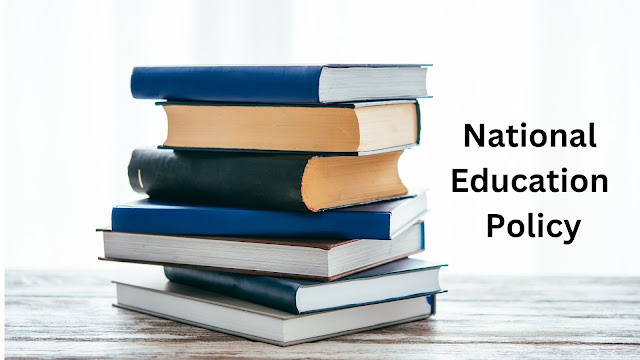National Education Policy: What does NEP truly mean for students in India
India's education landscape witnessed a
monumental shift with the introduction of the National Education Policy (NEP).
At Millennium World School, North Bangalore, we recognize the profound
implications of NEP on shaping the future of our students. In this blog, we
dissect the key aspects of NEP and explore what it truly means for students in
India, focusing on holistic education, self-awareness, lifelong learning,
technology integration, and vocational training.
Holistic Education: Nurturing Mind, Body, and Soul
The NEP emphasizes holistic education,
moving beyond rote learning to foster creativity, critical thinking, and
emotional intelligence. At Millennium World School, we embrace this holistic
approach, ensuring our students receive a well-rounded education that nurtures
their physical, mental, and emotional well-being. Our curriculum integrates
sports, arts, and cultural activities, providing students with a platform to
explore their passions and talents. Through holistic education, students
develop a deep sense of self-awareness and empathy, laying the foundation for
responsible and compassionate citizens.
Self-Awareness: Empowering Individuality
NEP encourages self-awareness among
students, emphasizing the importance of understanding one's strengths,
weaknesses, and interests. At Millennium World School, we implement
personalized learning pathways that cater to individual student needs. By
recognizing and nurturing each student's unique abilities, we empower them to
pursue their passions and aspirations. Our educators act as mentors, guiding
students on their educational journeys, helping them discover their true
potential. Through self-awareness, students gain confidence, enabling them to
face challenges and make informed decisions about their future.
Lifelong Learning: A Continuous Journey
NEP recognizes education as a lifelong process,
extending beyond classrooms and formal degrees. At Millennium World School, we
instill a love for learning in our students, encouraging curiosity and a thirst
for knowledge. Our teachers employ interactive teaching methods and real-world
applications, making learning engaging and relevant. By fostering a mindset of
continuous learning, we prepare our students for a rapidly changing world,
equipping them with the skills and adaptability needed to thrive in diverse
professional environments.
Technology Integration: Preparing for the Digital Age
NEP emphasizes the integration of
technology in education, recognizing its role in enhancing learning experiences
and expanding educational access. At Millennium World School, we leverage
cutting-edge technology to enrich our curriculum. Interactive smart classrooms,
online resources, and educational apps are integrated into daily lessons,
making learning interactive and dynamic. Through technology, students develop
digital literacy and problem-solving skills, preparing them for the demands of
the digital age.
Vocational Training: Bridging Education and Employment
NEP emphasizes vocational education, aiming
to bridge the gap between education and employment. At Millennium World School,
we offer vocational training programs that equip students with practical skills
relevant to various industries. From entrepreneurship workshops to technical
training sessions, students gain hands-on experience, enhancing their
employability. By integrating vocational training into our curriculum, we
empower students to explore diverse career paths and make informed choices
about their future professions.
Conclusion
The National Education Policy marks a
transformative era in Indian education, shaping a future generation that is
skilled, self-aware, and adaptable. At Millennium World School, North
Bangalore, we are committed to realizing the vision of NEP. Join us in this
educational revolution, where every child's potential is nurtured, and dreams
are given wings. Embrace the future of education with us, and let your child
thrive in an environment that fosters holistic growth, self-discovery, and
lifelong learning.
Contact Millennium World School, North
Bangalore, and witness your child's transformation into a well-rounded,
empowered individual prepared for the challenges and opportunities of tomorrow.

Comments
Post a Comment